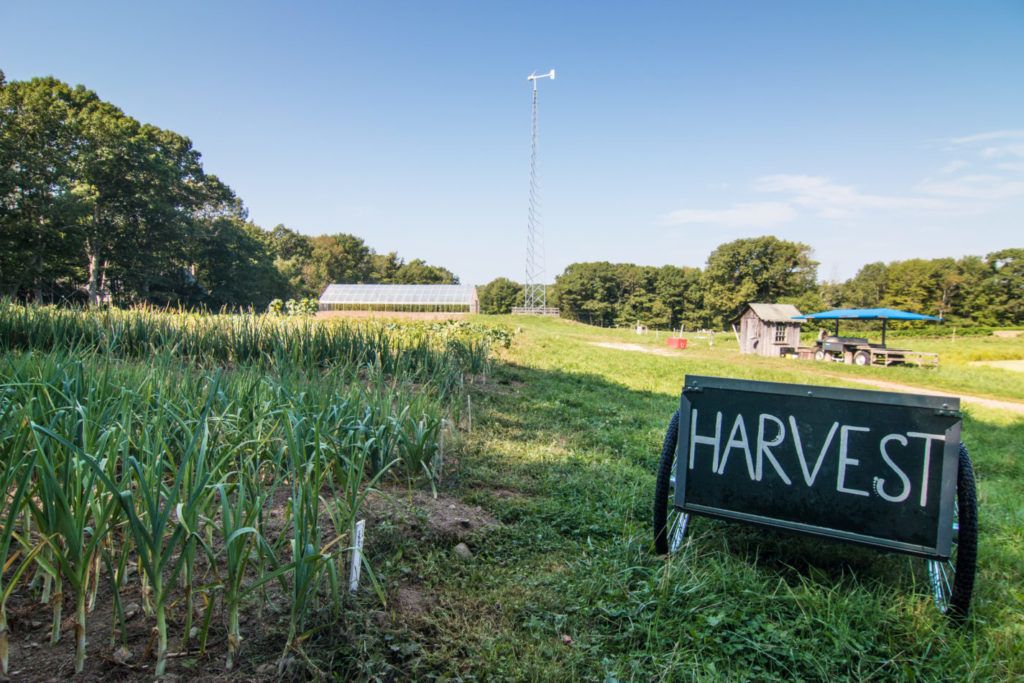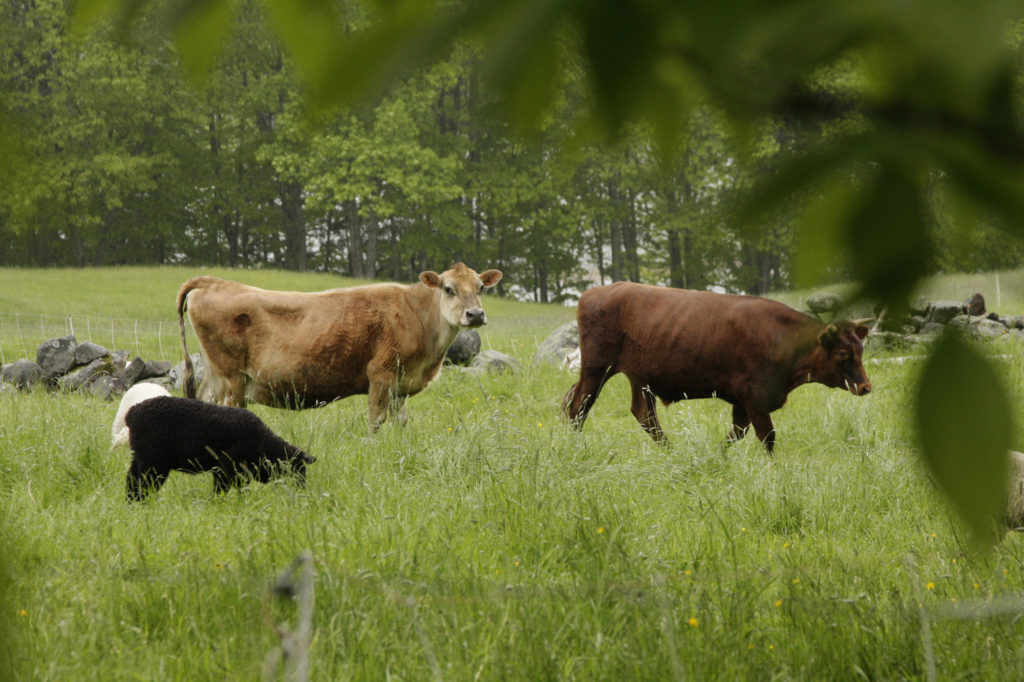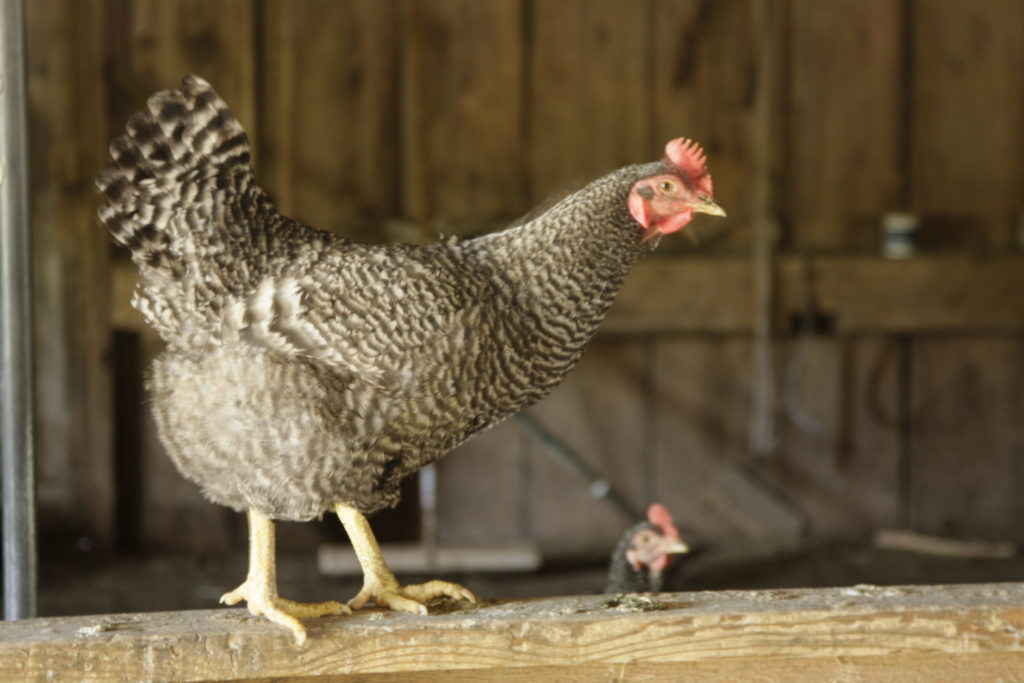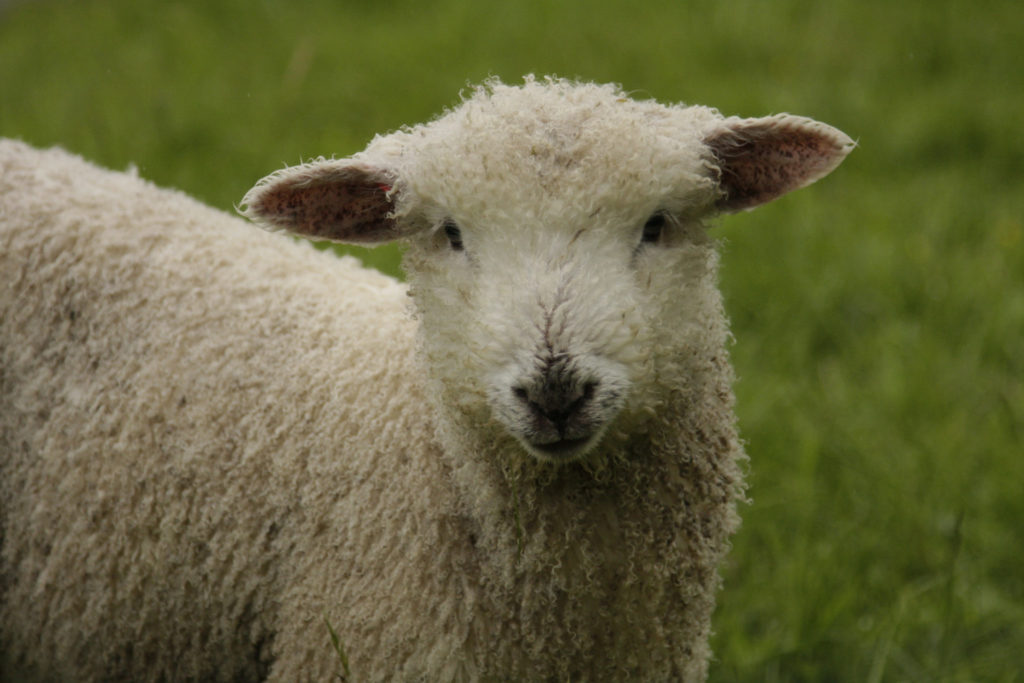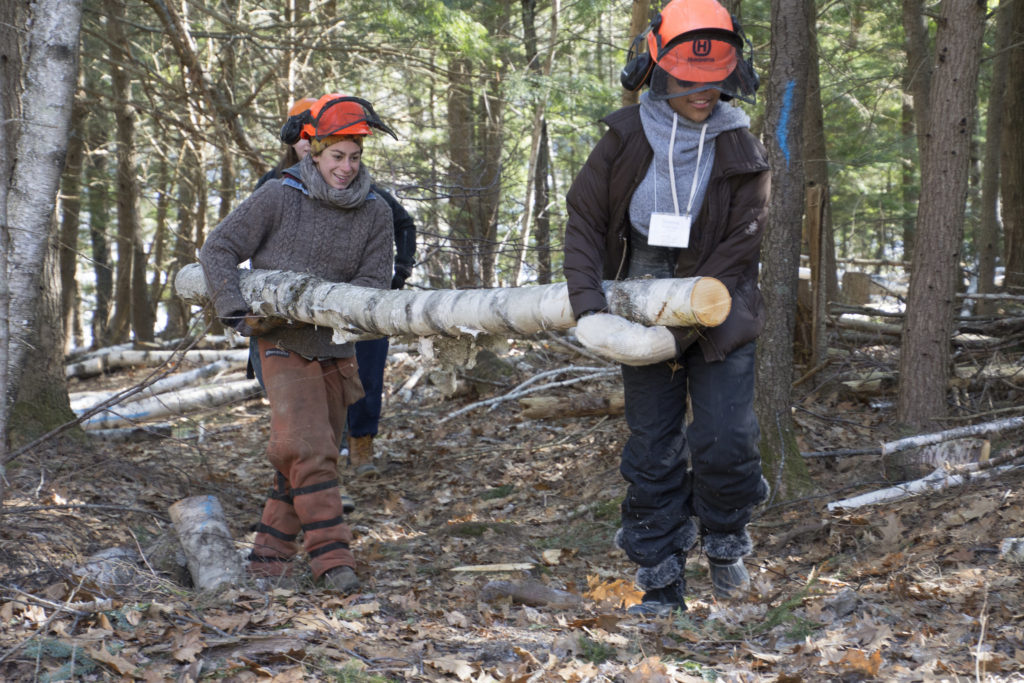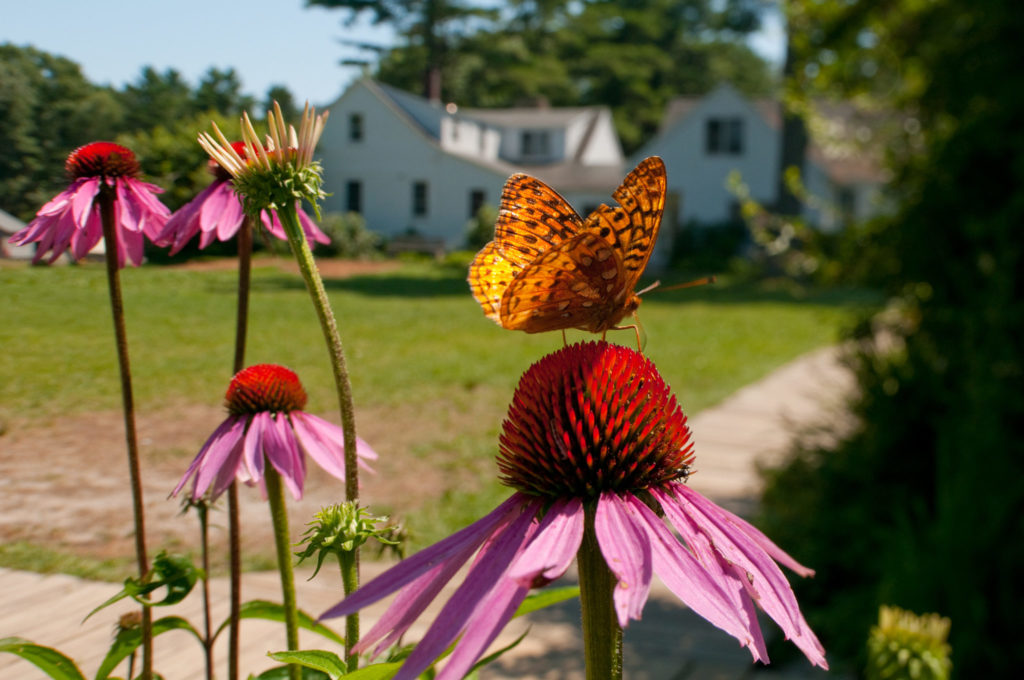Grow
What are the systems that bring us food, heat our homes, keep us warmly dressed in winter? Increasingly, our culture answers these questions in abstract terms, citing complex processes that disconnect us from that which fulfills our most basic needs.
Here at Chewonki, our food and farming systems are practical. Hands-on. Diversified. Complex in their interconnections. We – students and campers, cooks and farmers, draft horse and seedlings – are integral parts of those systems. The farm, kitchen, and forest are our classroom, providing mental and emotional sustenance as we re-elevate the work of the hands.
These places are also the very foundation of what nourishes us physically. Nine year old boys relish eating the potatoes that they dug on hands and knees. Teenagers feed the chickens and turkeys that will later be a community meal, and they learn to make bagels from scratch in our kitchen. Sixth graders cook dinner over an open fire. Students and farmers split the firewood that heats our dining hall and cabins, and young people learn to naturally dye our sheep’s wool and to spin, weave, crochet, and knit those fibers into fabulous hats, scarves, and mittens.
Wendell Berry wrote, “May we not forget: those who worked the land before us, those who will work the land after us, and the land itself.” The agricultural and culinary history of this place runs deep, and so many fine folks have built the systems that grow and feed us. And as for the land itself: we work on it daily with dirty hands and weary muscles. And it works on us too, teaching about the resiliency of natural systems and asking us to meet our own potential to do real and meaningful work.
